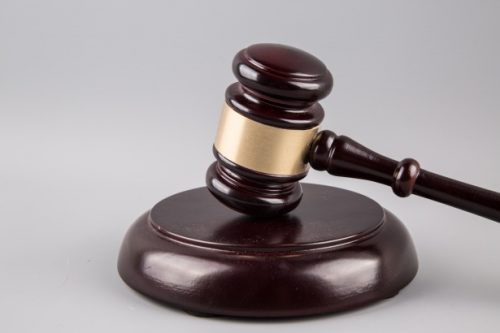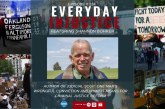

By Citlalli Florez and Ximena Cesa
RICHMOND, VA – Filing a “first-of-its-kind lawsuit” this week, “Today Protect Democracy,” the ACLU of Virginia and WilmerHale challenged the Virginia Constitution’s felony disenfranchisement provision going back to Virginia’s readmission to representation after the Civil War—a 150-year-old federal law.
The lawsuit said the Virginia Readmission Act prohibits Virginia’s Constitution to be changed in a way that would deprive citizens of their right to vote with the exception of felonies such as murder, arson, burglary, etc.
However, this act was later violated when Virginia amended its constitution to include all felonies, disenfranchising those convicted of “a far broader set of crimes,” prohibiting those convicted of non-violent felony crimes to be able to vote, an activity that coincides with being a citizen.
Attorney Vishal Araharkar states that this allowance of disenfranchisement throughout the decades has led to over-criminalization, something that is actually illegal.
This idea of over-criminalization is personified through a minister who believes in second chances, and was released from prison in 2001 but still feeling the ramifications despite changing his life and being invested in their community.
Due to the plaintiff being unable to vote they are not able “to fully participate in [their] community,” the suit claims.
The ostracization of individuals who have served their time and have not reoffended suggests the judicial system does not aim to rehabilitate, but rather continue to punish individuals far after their “dues are paid,” the suit argues.
According to WilmerHale Partner Brittany Amadi, “the case filed today alleges that by disenfranchising all people with felony convictions” the policy violates the readmission law.
Amadi adds, “Virginia’s constitution violates a Reconstruction-era law called the Virginia Readmission Act, one of several federal Readmission Acts that established the terms under which former Confederate states could regain representation in Congress.”
The Virginia Constitution disenfranchises all people convicted of a felony. This includes those not “felonies at common law” in 1870. For example, drug offenses or publishing a forged document were not considered felonies at common law, but they still led to losing the right to vote.
An argument presented within the lawsuit states Virginia cannot disenfranchise people convicted of those or other categories of crime without violating the Virginia Readmission Act.
Toni Heath Johnson, a 60-year-old resident, recalled, “I lost my right to vote because I was convicted of charges related to drug possession.”
Johnson adds, “I’ve served my sentence. Being barred from voting amounts to a second sentence, especially since voting is a fundamental part of my ability to have a voice in decisions that better my life, my family’s lives, and my community.”
According to the sentencing project, the case would cause more than 300,000 Virginians to be disenfranchised due to felony convictions. On the national level, 1 in 19 eligible Black voters are disenfranchised, which is four times the rate for the non-Black population. In Virginia, this rate is twice as high, as one in eight voters are disenfranchised.
The lawsuit states that “the rate of felony disenfranchisement among Black voting-age Virginians is more than twice as high as the rate of felony disenfranchisement among the entire United States Black voting-age population.”
Individual plaintiffs named in the lawsuit are from across the commonwealth and have been barred from voting in 22 elections since their felony convictions.
Tati Abu King, a 52-year-old resident of Alexandria, Virginia, said, “There are a lot of Black men like me who have had their voting rights taken away. That means I have no voice in what’s happening in my community, in my state.”
King asked, “What am I supposed to tell my stepchildren who are learning at school that democracy means everybody has a voice?”
The lawsuit seeks to redress and restore voting rights which Congress guaranteed to Virginia’s citizens in 1870.
According to Rachel Homer, Counsel at Protect Democracy, “Because Virginia currently disenfranchises people convicted of all felonies, it directly violates federal law… Virginians’ government has illegally disenfranchised people for more than 100 years. But this lawsuit proves that it’s never too late to right a wrong.”




